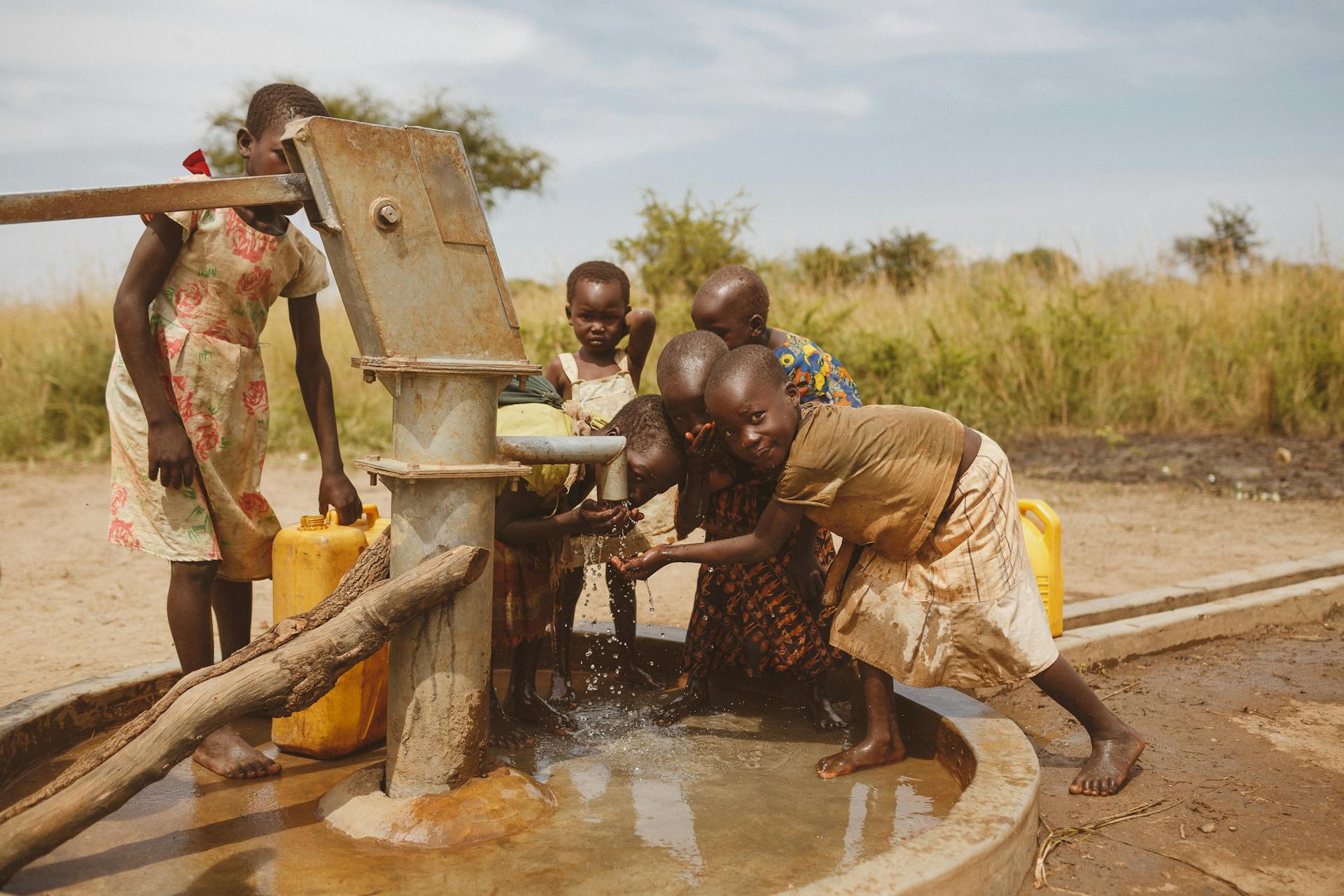Bringing clean water to Irodo through community, innovation, and heart.
In 2016, Floris Koumans—founder and group director of Orange Pearl—traveled with his family to Madagascar, a faraway and captivating destination. Over the course of five weeks, they explored the country, making several stops along the way. One of these brought them to the bungalows of a Frenchman named Alain Gonon in Antsiranana.
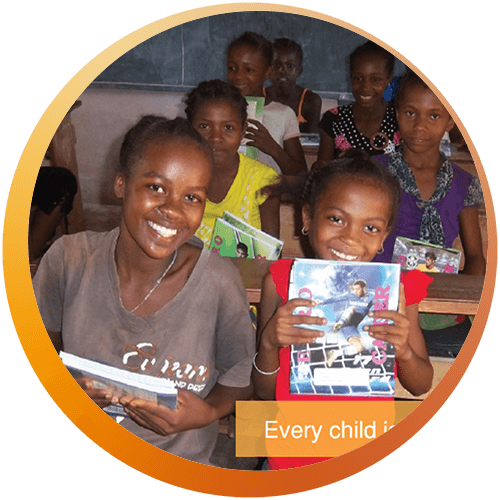
Alain Gonon
Alain Gonon, a Frenchman who traveled annually by motorcycle, had a unique hobby that evolved into his life’s mission. Through a small French organization, he selected a village in a developing country each year, gathering a group of volunteers to build schools for local children. This admirable endeavor took him to several African nations, including Irodo.
Alain’s deep affection for Madagascar—particularly for Irodo—eventually led him to make a life-changing decision. He sold his small construction company in France and embraced a new beginning in Madagascar. Now living not far from Irodo, he visits the village weekly. He supports the school’s needs and ensures the teachers receive their salaries.
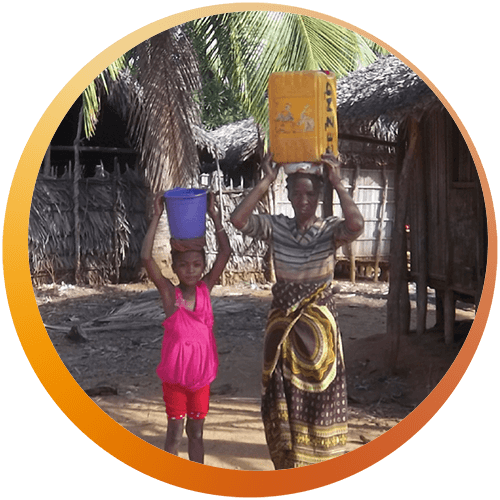
Climate change
Climate change, combined with deforestation, led to severe droughts. These droughts caused the village’s wells to run dry. The local water system—consisting of a few taps connected to the wells—became defunct. This posed a serious problem for the village. They relied on water not only for drinking and small farming plots but also for their most prized possessions: special cattle known as zebu.
Each year, dehydration claimed the lives of many zebu. The only remaining water source was a small river located four kilometres away.
A well-devised plan
Alain and his close friend Izmael grappled with a dire problem: how to supply the village with a reliable source of water. Izmael conceived a brilliant solution—constructing a long pipeline from the river to the village well. Since the small river flowed through elevated terrain, higher than the village itself, most of the pipeline’s route would be gently downhill. This clever design would harness gravity to keep the well supplied with water as needed. Moreover, it was a cost-effective solution. It required minimal maintenance, machinery, or pumps—critical advantages in a region lacking electricity and financial resources.
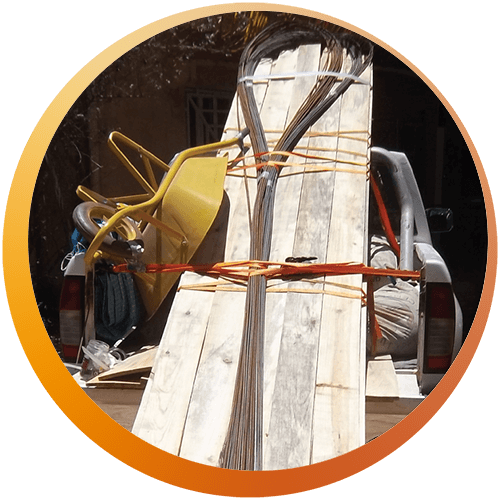
Approval
Before implementing their plan, Alain and Izmael understood the importance of securing approval and support from the local community. They especially needed the blessing of the village’s spiritual leaders, who held significant influence over cultural matters. The village chief and elders also needed to endorse the project.
A special ceremony was held to seek the blessing of the spirits and village ancestors. After that, the plan was presented to the entire community. The villagers embraced the initiative wholeheartedly. They offered their labour free of charge. The promise of a reliable water source filled them with hope.
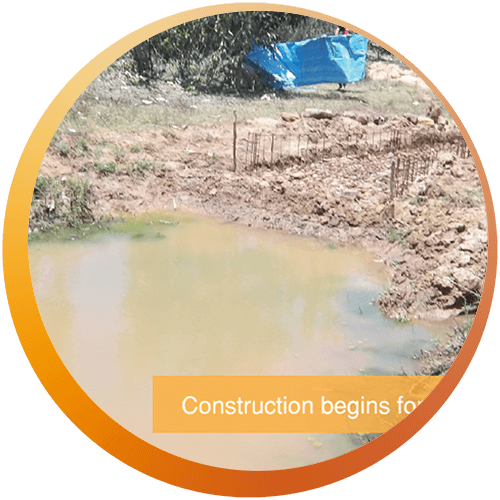
Grow and Flourish
The total estimated cost of the project was €5,000. This covered materials and transportation. Given the village’s remote location and limited accessibility, Alain committed to delivering the materials himself. He even brought rice to help feed the workers. His initiative deeply aligned with the values of the Grow and Flourish Foundation—established by Floris Koumans—which supports global projects aimed at making the world a better place.
A firm commitment was made to cover the full project cost. When Floris and his family visited the village, they were deeply moved by the project’s impact. It perfectly reflected the foundation’s mission: to support initiatives that foster positivity, responsibility, and purposeful profit.
The project was soon presented to the Orange Pearl management team. Floris reached out to Alain. In collaboration with the Grow and Flourish Foundation, Orange Pearl agreed to fund the project. This allowed work to begin without delay. The village erupted in joyful celebration. Applause, laughter, and dancing filled the air as hope returned to the heart of the community.
How does the pipeline work?
Alain and Izmael wasted no time in starting the project. First, they cleared a path for material delivery and prepared the pipeline’s route—a challenging four-kilometre stretch. Villagers joined in to help clear the way and transport supplies.
A small dam was built in the river. It was connected to a simple natural filter: a concrete structure filled with gravel and sand. This filter purified the water as it passed through. The clean water was then directed through a large valve, which could be manually controlled.
To manage water pressure—especially during the monsoon season—several pressure release “stops” were installed along the pipeline. These stops also served as watering points for both zebu and field workers.
Thanks to the tropical climate, the water inside the pipeline could reach temperatures of over 60°C. This naturally eliminated harmful microorganisms. Once the water reached the village, it flowed into a concrete filtration reservoir. From there, it overflowed into the well and nearby access points. The system ensured a constant supply of clean water while protecting the well from erosion and damage.
Fresh water shower
The Water for Irodo project was completed successfully within a precise three-month timeframe. The allocated budget proved sufficient. Surplus funds were directed to the local school. These funds helped support teachers and provide learning materials for the children.
Just before Christmas, Alain officially inaugurated the project. The opening ceremony featured a joyful shower of fresh water for all villagers—a long-awaited luxury in Irodo. A traditional celebration followed, with the whole village taking part. Sacrifices were made, and there was abundant food for everyone. It was a truly momentous occasion.
The impact of Orange Pearl and the Grow and Flourish Foundation in Irodo has been both lasting and profound. Their work helped bring clean water to Irodo—a milestone that changed lives for generations to come. Their work brought clean water to Irodo and changed lives for generations to come.


